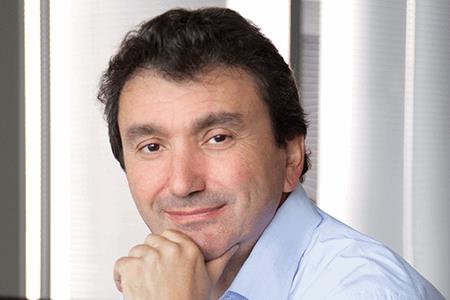Companies To Watch: Abivax
By Wayne Koberstein, Executive Editor, Life Science Leader
Follow Me On Twitter @WayneKoberstein
Pushing to cure HIV infection — by clearing the virus from the body.
SNAPSHOT

WHAT’S AT STAKE
The first thing to know about Abivax is that it is not a vaccine company. Changes since its 2013 founding in France turned the company’s focus from prevention to cure. Its lead drug, coded ABX464, may reduce viral reservoirs of HIV in the body to vanishingly small levels and keep them there, effectively rendering patients completely free of disease. The company has made the ongoing and future Phase 2 trials its top priority for some time to come.
CEO Hartmut Ehrlich, M.D., joined the company as a veteran in building R&D portfolios for Lilly, Sandoz (pre-Novartis), and Baxter. He can speak science like a scientist at one moment and like a business-wise executive the next. He explains how Abivax emerged from a convergence of research streams into viral interference, immune-response modulation, and protein-RNA interaction targeting.
“We actually go back to the early 1990s when Jamal Tazi, a molecular geneticist and professor at the CNRS (Centre National de la Recherche Scientifique), was studying the bioprocessing of viral RNA (ribonucleic acid). Around 2006, he realized the process can be modulated pharmaceutically.” Tazi knew Philippe Pouletty, M.D., then the managing director of Truffle Capital, a Paris-based venture fund. The idea immediately attracted Pouletty, a physician and immunologist, and he subsequently founded a company, Splicos, around the IP in 2008. Together with medicinal chemists at the Institut Curie in Paris, the company started to develop a library of more than 1,000 small molecules selected for their potential effects on targeted protein-RNA interactions, primarily to inhibit the biogenesis of viral RNA.
In time, the collaboration grew to include Wittycell and Zophis. Later, the three companies merged to form Abivax, giving it the three basic platforms of the merged companies, designated as antiviral, immune enhancer, and polyclonal antibodies. Abivax continued to screen the library of compounds, and one molecule, the basis of ABX464, produced a strong signal against an RNA target in HIV. The company then shifted from its primary focus on vaccine-related programs to developing the molecule into a therapeutic drug candidate.
ABX464 initially targets HIV’s need to transport a large chunk of viral mRNA from the nucleus of an infected cell to the endoplasmic reticulum to induce synthesis of three structural viral proteins. A viral protein called Rev blocks cellular enzymes that would otherwise chop the large piece of mRNA to bits. The result is radically lowered viral loads through impeded reproduction and also — as it turns out — by immune enhancement. Some remains of the chopped-up mRNA inside reservoir cells that harbor the virus may be translated into antigenic peptides deposited on the cells’ surfaces, exposing them to immune recognition and attack. Hence, the viral reservoir may plummet over time, impaired from triggering a reappearance of the virus after anti-viral therapy ends.
Keep an eye on Abivax. What I just described could accomplish a revolution in HIV treatment, with a realistic emphasis on the subjunctive. Phase 2 trials for ABX464 have been encouraging, as in lending courage when it is most needed in drug development — at the precipice of Phase 3.
Vital Statistics
Employees: 24
Headquarters: Paris, France
Finances:
2008 & Later: $47-53M Truffle Capital invested in Abivax and its legacy companies.
2015 IPO: $67M Raised — Paris Exchange
Partners
Evotec R&D, novel antivirals
Centre National de la Recherche Scientifique (CNRS) scientific research
Institut Curie, Paris expand library of antiviral compounds
Latest Updates:
September 2017: First patient dosed in three month cohort of Phase 2A study of oral ABX464 in HIV-suppressed patients.
September 2017: Abivax and Evotec enter into strategic collaboration to develop novel antiviral agents.
